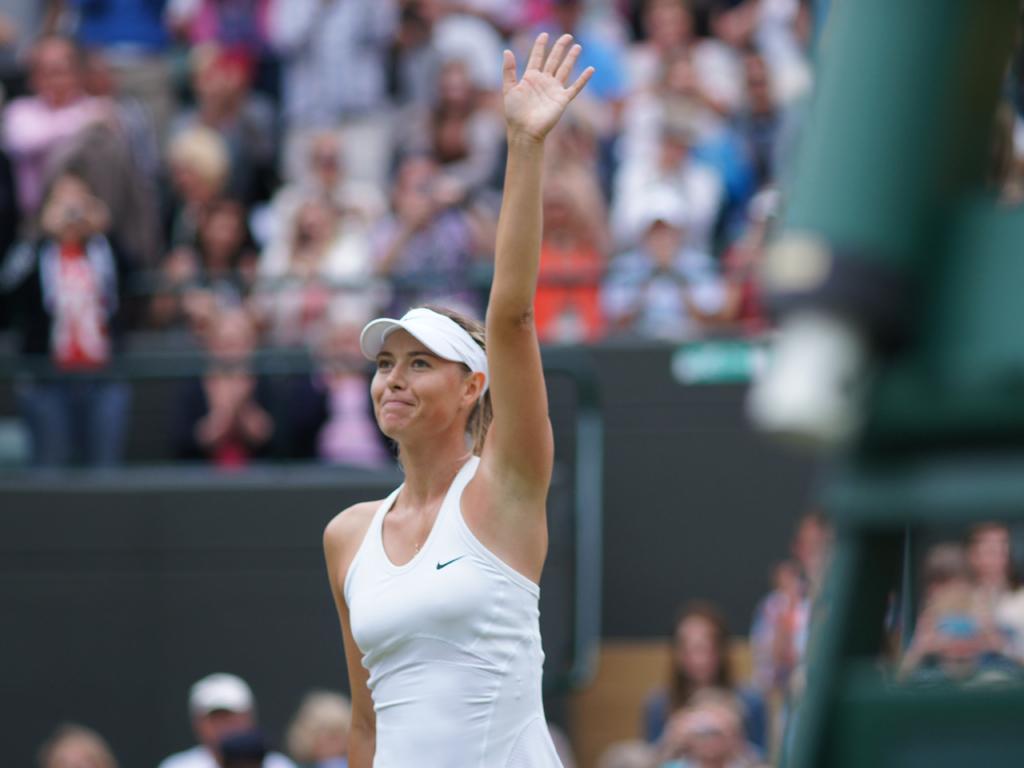One day in June 2004, I came home from school, switched on the Wimbledon coverage and was transfixed by Maria Sharapova – a 17-year-old Russian who played tennis with an intensity I had never seen before.
Unfortunately I don’t remember which of her matches I saw first – her second-round win over Anne Keothavong or her third-round victory over Daniela Hantuchova – but I do remember that she blew away her opponent (and me) with her sublime ball-striking ability.
Sharapova’s serene progress continued until the quarter-final, when she faced her first real test against Ai Sugiyama. At the time, the Japanese player was a top-20 player. And she had plenty of experience to draw on after over a decade on tour.
Initially, Sugiyama’s maturity shone through as she won a tight opening set 7-5. However, her young Russian opponent gave many people their first glimpse of one of her defining qualities – fighting spirit. She clawed her way back into the match by coming out on top in an equally close second set. Having broken through the Japanese player’s resistance, Sharapova romped through the decider 6-2 to reach the semi-final.
Against All Odds
Despite her exceptional run to the last four, many observers believed it would come to an end when she faced Lindsay Davenport. It is clear from Sharapova’s autobiography that she agreed.
“I was a kid. Lindsay was a woman. I was weak. Lindsay was strong. I was stringy and narrow. Lindsay was powerful and solid. As I said, in many ways our games were alike. We went by power, played from the baseline, hit flat and low, without much spin, a style that both of us learned from Robert Lansdrop.
“She was twenty-eight years old, so far along there was talk of her retirement. She was not number one just then – that was Serena – but had been number one, off and on, for ninety-eight weeks. So she was one of the greatest tennis players in the world.
“In other words, I’d hung on and hung on till I’d advanced myself right out of my league. I mean, how was I supposed to beat Lindsay Davenport? She was just like me, only bigger, stronger, older, and more experienced. She was just like me, only way more.”
As if that was not already enough to make Sharapova’s task extremely difficult, she also found herself a bit overwhelmed by the occasion. She said she felt as though the crowd would see she was a kid “who did not belong there”, and that the first serve she hit “fluttered over the net like a butterfly”.
Rain Saves Sharapova

Just as the Russian expected, Davenport overwhelmed her to begin with. She won the first set 6-2 in just 26 minutes and then went up a break in the second. But just when it seemed like all hope was lost, fate intervened. Rain came pouring down and Sharapova retreated to the locker room to regroup.
Not that the Russian saw it that way. “In my mind, I was already on the plane, heading home,” she said. Thankfully, her father Yuri had other ideas. He told her he had seen it in a dream that she would turn this match around and go on to win the tournament.
And he seemed so certain that Sharapova believed him. It had a strong effect on her. She explained, “In that minute, I went from feeling like I had absolutely no chance, being beaten before I even went back out on the court, to believing I would have the prize if only I could summon the will to take it.”
To her immense credit, that is exactly what the Russian did. She came out after the delay and played exceptionally well. She returned well, drilled her trademark, flat groundstrokes into the corners for seemingly countless winners and even came to the net sometimes to finish points. It was a remarkable turnaround.
Showdown with Serena
I do not have many clear memories of Sharapova’s run to the championship match of Wimbledon 2004. But the final itself will stay in my mind forever.
I remember sitting down to watch it with my mother and thinking, I really hope this spirited Russian underdog can win, but I don’t really believe it. I mean, this is Serena Williams she is facing after all.
If Sharapova had any doubts, they did not show. She came out onto Centre Court and demolished the best female tennis player on the planet. She sent down ace after ace when she served and hit a thrilling succession of winners to finish rallies when they had scarcely begun. And the Russian attacked Serena’s serve in a way I had never seen before and remained calm and focused throughout.
Consequently, the match was over in about 70 minutes and Maria Sharapova – the 17-year-old Russian who most viewers barely knew before the tournament – was the Wimbledon champion. She had produced an extraordinary performance that stunned the sporting world and changed her life forever.






